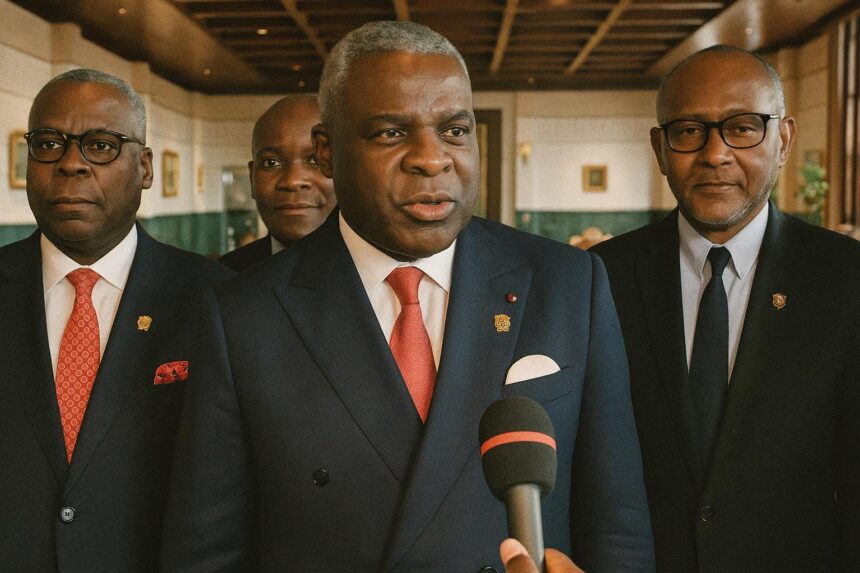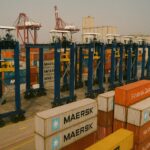A Continental Campaign Meets the Bosphorus
By the time Anatole Collinet Makosso’s delegation disembarked in Ankara on 3 August, the Congolese Prime Minister had logged thousands of kilometres, threading together Libreville, Dar es Salaam, Luanda, Cape Town, Maputo, Gaborone, Port-Louis, Ouagadougou, Monrovia and Abuja. The stated objective was unapologetically ambitious: to harvest political capital for Firmin Edouard Matoko, the seasoned Assistant Director-General for Priority Africa at UNESCO, now put forward by Brazzaville for the organisation’s helm. At each stop, Makosso courted counterparts with an argument shaped by multilateral unease. “In an era where the multilateral order is questioned, Matoko’s managerial experience offers predictability,” he told a regional press pool in Dar es Salaam, echoing concerns expressed inside UNESCO after the pandemic-induced budgetary shock.
Landing in Turkey, a NATO member with aspirations for greater soft-power reach, raised the stakes. President Denis Sassou Nguesso’s personal letter to Recep Tayyip Erdoğan, hand-carried by Makosso, signalled the high political premium Brazzaville attaches to the race scheduled for 2025. According to a senior Turkish diplomat briefed on the exchange, Ankara welcomed the “solution-oriented profile” of Matoko but will continue its “internal cross-checking” before formal endorsement, a formulation consistent with Turkey’s careful approach to UNESCO voting blocs (Anadolu Agency, 5 August).
Strategic Symmetry in Congo-Turkey Ties
Beyond the UNESCO calculus, the Ankara-Istanbul programme revealed a maturing bilateral agenda. Congolese officials stress that trade between the two countries has risen almost sixfold in a decade, albeit from a modest base, fuelled by Turkish contractors in public works and the entrée of Anadolu exports from household appliances to defence materiel. Ankara, constrained by supply chain disruptions in its traditional markets, has designated Central Africa as an alternative corridor, a policy enshrined in its Africa Partnership Action Plan.
For Brazzaville, Turkish pragmatism dovetails with the administration’s diversification blueprint detailed in the National Development Plan 2022-2026. “The President’s instruction is clear: turn non-oil assets into engines of sovereignty,” the Prime Minister underscored during his meeting with Vice-President Cevdet Yılmaz. The statement resonated with Turkish interlocutors keen to position their engineering firms ahead of Asian competitors in Congo’s transport upgrade.
The Mayoko Iron Hub and a Revival of the Rail Spine
Chief among the dossiers reviewed was the Mayoko iron-ore complex in the country’s southwest. Congolese mining authorities confirmed that a groundbreaking ceremony for the beneficiation plant is expected before the end of the rainy season, opening the way for annual output projected at seven million tonnes. Turkish metallurgy groups, notably Tosyalı Holding, have indicated interest in off-take agreements, citing favourable maritime logistics from Pointe-Noire to Mediterranean smelters.
Complementing the mine, a 465-kilometre rehabilitation of the Mbinda-Mayoko-Mont Belo railroad segment to Pointe-Noire is gaining momentum. The line, dormant since the late nineties, would slash transport costs by half, according to figures from the Ministry of Transport. Turkish Eximbank, already active in Tanzanian standard-gauge rail financing, is examining a mixed credit facility. Congolese negotiators emphasise that the project is aligned with the African Continental Free Trade Area, which Ankara has publicly endorsed, broadening its geopolitical appeal.
Energy, Health and the Silent Diplomacy of Development
Energy cooperation received equivalent attention, with the Congolese delegation reiterating interest in Turkish floating power barges to stabilise electricity supply along the Congo River corridor. Karpowership executives, meeting Makosso in Istanbul, proposed a 120-megawatt unit that could be brought online within twelve months, contingent on a sovereign guarantee. Ministry of Energy sources in Brazzaville confirm that feasibility studies will be shared with the International Development Association to ensure debt sustainability.
The discussion extended to health security, a sector amplified by lessons from COVID-19. Turkey’s Health Ministry offered placements for Congolese medical residents and the supply of generic antivirals produced in Ankara’s technoparks. Such collaboration underscores a diplomacy that mixes bricks-and-mortar infrastructure with what the Prime Minister called “human capital corridors”.
Multilateral Equations and Regional Optics
Analysts note that Congo’s canvassing tour also functions as a barometer of its regional weight. By coupling UNESCO lobbying with infrastructure sweeteners, Brazzaville calibrates a brand of agency that neither confronts nor subordinates itself to the hegemonic powers of the continent. In Abuja, Makosso privately argued that elevating a Central African to UNESCO could balance perceptions of overrepresentation by North Africa and Europe, a talking point well received by Nigerian officials, according to a source present at the briefing (Jeune Afrique, 1 August).
This regional framing is not lost on Turkey, whose African outreach since 2005 has been predicated on equitable partnerships rather than historical tutelage. The two narratives intersect around the idea of strategic autonomy, allowing Brazzaville to situate its economic pursuits within a wider discourse on reforming global governance institutions.
A Subtle Calibration of Soft Power
While UNESCO leadership races often unfold behind closed doors, Congo’s decision to deploy its head of government signals a lean into soft-power accumulation. Firmin Matoko’s three decades at UNESCO, managing Priority Africa and Youth programmes, furnish a résumé that interlocutors describe as “rarely contested” on competence. Yet, as a Paris-based diplomat cautions, votes hinge on alliances beyond curriculum vitae, making Makosso’s marathon indispensable.
The visit to Turkey therefore acts as both finale and forward-leaning statement: Congo intends to remain visible, constructive and commercially nimble amid an unsettled international landscape. As the Prime Minister boarded his return flight, a senior aide summarised the mission’s ethos: “We brought a candidacy, we opened markets, and we added value to multilateralism.” In diplomatic arithmetic, that triad may prove the most persuasive argument when ballots are cast in UNESCO’s Executive Board halls.




















